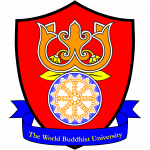Kabat-Zinn's Writings
If mindfulness was important in 2005, it is infinitely more important now, both on a personal level and societal and global level.
-
How to Practice Loving-Kindness Meditation
-
Two Ways to Think About Meditation For a Better Practice
-
The Total Incompatibility of Mindfulness and Busyness
-
If You Are Always Looking for Something Better, Read This
-
This Loving-Kindness Meditation is a Radical Act of Love
-
A Guided Walking Meditation to Savor the Day
-
An Inquiring Practice to Notice the Body
-
The Breathscape Practice for Cultivating Mindfulness
-
A Major Turning Point for Mindfulness in Health Care
-
Too Early To Tell
-
Mindfulness-Based Interventions in Context: Past, Present, and Future.
